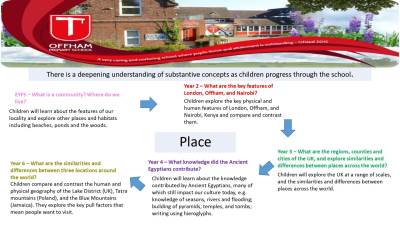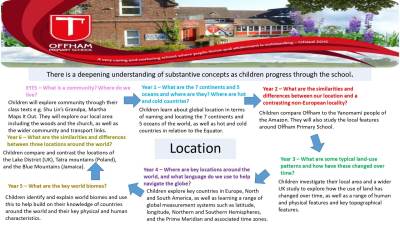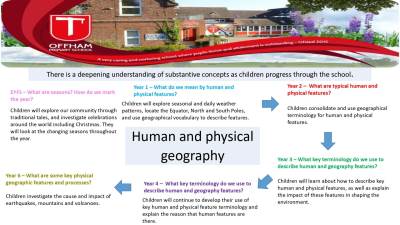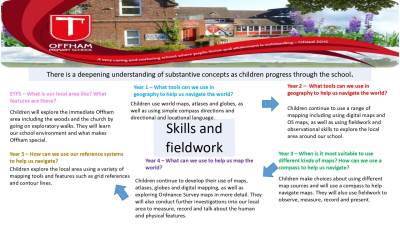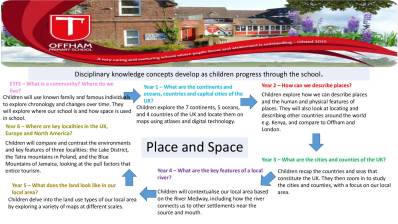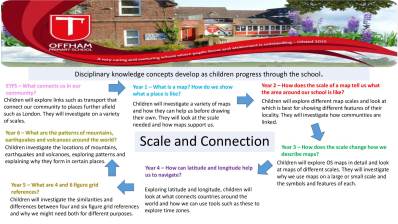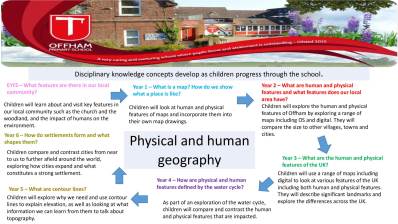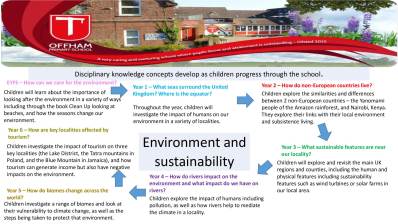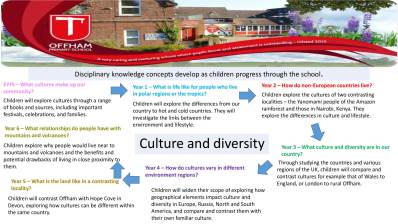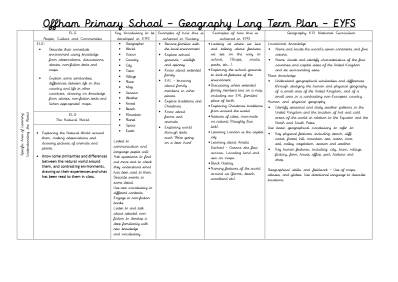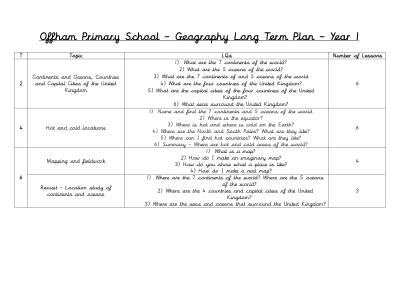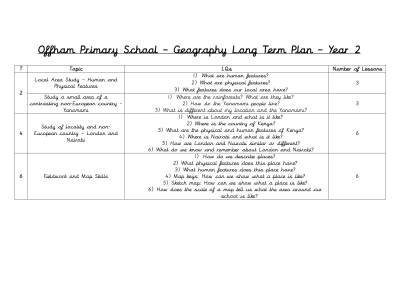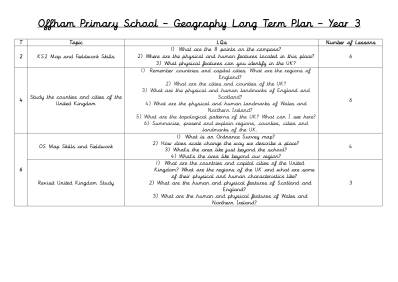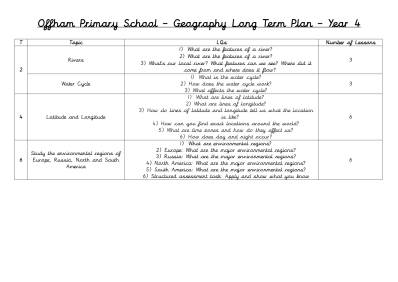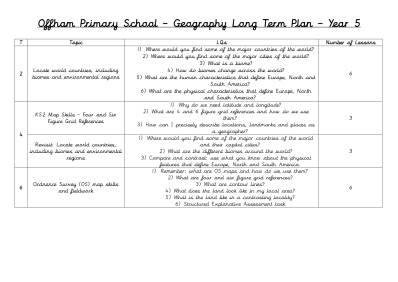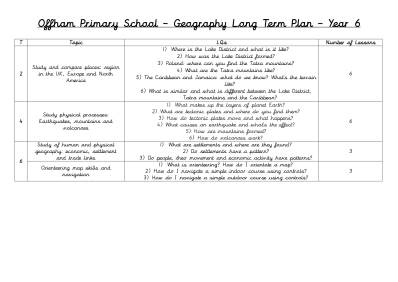Geography
Geography is the study of where places are found, what they are like and the relationships between people and their environments.
a) Substantive knowledge - this is the subject knowledge and explicit vocabulary used to learn about the content. Common misconceptions are explicitly revealed as non-examples and positioned against known and accurate content as pupils become more expert in their understanding. Misconceptions are challenged carefully and in the context of the substantive and disciplinary knowledge. In CUSP Geography, it is recommended that misconceptions are not introduced too early, as pupils need to construct a mental model in which to position new knowledge.
CUSP have defined substantive concepts that are the suggested vehicle to connect the substantive knowledge. These are defined at the start of every study in the Big Idea.
Geography - Substantive Knowledge Strands
b) Disciplinary knowledge – this is the use of knowledge and how children become a little more expert as a geographer by Thinking Geographically. CUSP draw upon the work of Cresswell, Lambert and Massey to offer suggestions about the discipline of geography.
Geography - Disciplinary Knowledge Strands
c) Geographical analysis is developed through selecting, organising and integrating knowledge through reasoning and making sense of the content in response to structured questions and well-designed tasks that cause children to think hard as geographers.
d) Substantive concepts are the big ideas, and the golden threads, that run through a coherent and cohesive geography curriculum. They can include place, space, scale, interdependence, physical and human processes, environmental impact, sustainable development, cultural awareness and cultural diversity. Concepts such as change through erosion are taught through explicit vocabulary instruction as well as through the direct content and context of the study.
EYFS to Year 6 - Long Term Plan
Geography - Long Term Plan
PRINCIPLES
A guiding principle of CUSP Geography is that each study draws upon prior learning. For example, in the EYFS, pupils may learn about People, Culture and Communities or The Natural World through daily activities and exploring their locality and immediate environment. This is revisited and positioned so that new and potentially abstract content in Year 1 can be put into a known location and make it easier to cognitively process.
Pupils in EYFS explore globes and world locations through their curiosity corners, making links to where animals live. This substantive knowledge is used to remember and position the locations of continents and oceans, with more sophisticated knowledge. High volume and deliberate practice are essential for pupils to remember and retrieve substantive knowledge and use their disciplinary knowledge to explain and articulate what they know. This means pupils make conscious connections and think hard, using what they know.
CUSP Geography is built around the principles of cumulative knowledge focusing on spaces, places, scale, human and physical processes with an emphasis on how content is connected and relational knowledge acquired. An example of this is the identification of continents, such as Europe, and its relationship to the location of the UK.
CUSP Geography equips pupils to become ‘more expert’ with each study and grow an ever broadening and coherent mental model of the subject. This guards against superficial, disconnected and fragmented geographical knowledge. Specific and associated geographical vocabulary is planned sequentially and cumulatively from Year 1 to Year 6. High frequency, multiple meaning words (tier 2) are taught and help make sense of subject specific words (tier 3).
Each learning module in geography has a vocabulary module with teacher guidance, tasks and resources. CUSP Geography is planned so that the retention of knowledge is much more than just ‘in the moment knowledge’. The cumulative nature of the curriculum is made memorable by the implementation of Bjork’s desirable difficulties, including retrieval and spaced retrieval practice, word building and deliberate practice tasks.
This powerful interrelationship between structure and research-led practice is designed to increase substantive knowledge and accelerate learning within and between study modules. That means the foundational knowledge of the curriculum is positioned to ease the load on the working memory: new content is connected to prior learning. The effect of this cumulative model supports opportunities for children to associate and connect with places, spaces, scale, people, culture and processes.
CUSP fulfils and goes well beyond the expectations of the National Curriculum. CUSP was the right fit for Offham Primary school as we believe there is no ceiling to what pupils can learn if the architecture and practice is founded in evidence-led principles.

